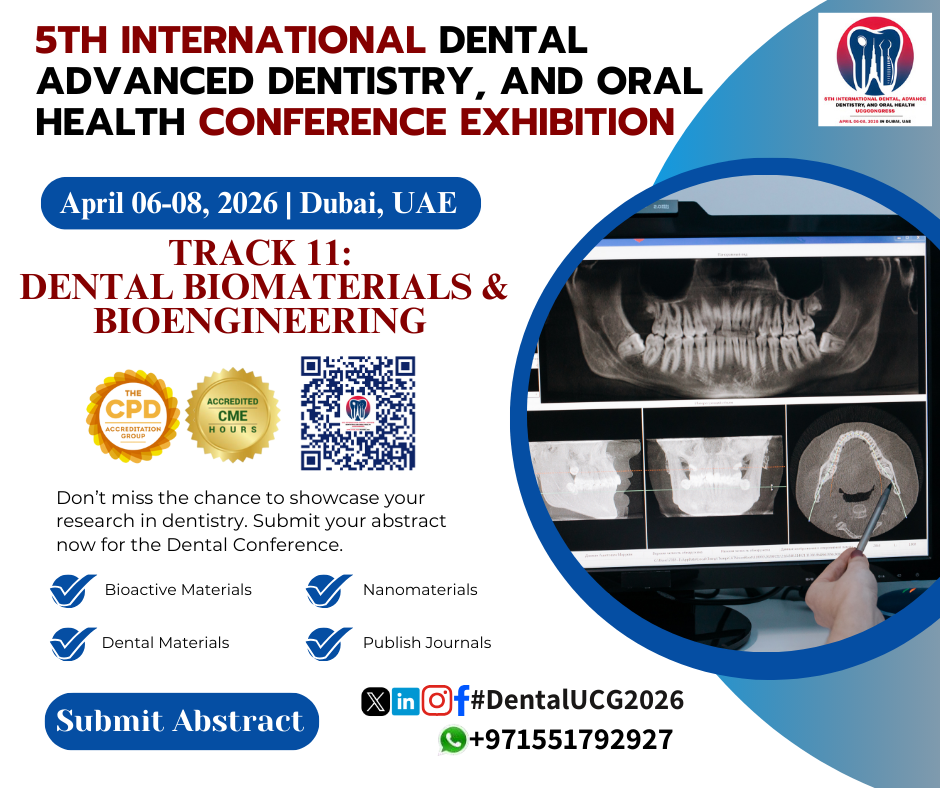Sub Tracks: Dental Biomaterials & Bioengineering
Biocompatible Materials, Advanced Ceramics, Composite Resins, Biomimetic Materials, Regenerative Materials, Dental Implants and Coatings, Tissue Engineering, Smart Materials and Sensors, 3D Printing in Dentistry, Nanotechnology in Dental Materials, Surface Modifications, Biodegradable Materials, Material Testing and Standards, CAD/CAM Materials, Clinical Applications and Innovations.
What is Dental Biomaterials & Bioengineering ?
Dental biomaterials and bioengineering focus on developing and applying materials and technologies to improve dental treatments. This includes creating biocompatible materials for restorations and implants, advancing tissue engineering for regeneration, and using innovative technologies like 3D printing and nanotechnology to enhance dental care and outcomes.
Clinical Applications and Innovations:
Clinical applications and innovations in dentistry include the use of advanced imaging technologies for accurate diagnosis, the development of new materials for improved restorations, minimally invasive techniques for patient comfort, and the integration of digital workflows for efficient treatment planning and execution.
Dental Implants and Coatings:
Dental implants and coatings involve placing titanium or other biocompatible materials into the jawbone to replace missing teeth. Coatings, such as bioactive or antimicrobial surfaces, enhance the integration of implants with bone and reduce the risk of complications, improving the longevity and success of the implant.





